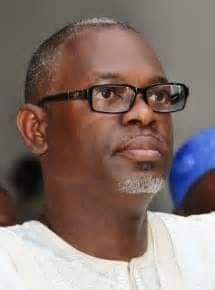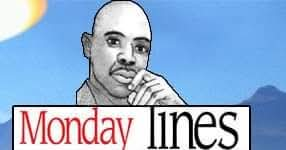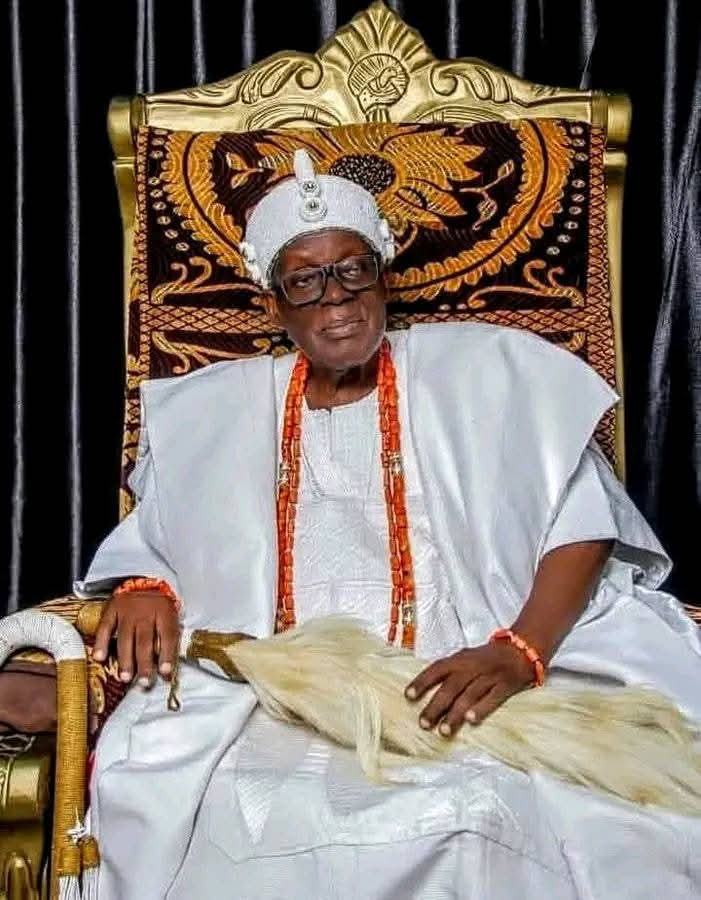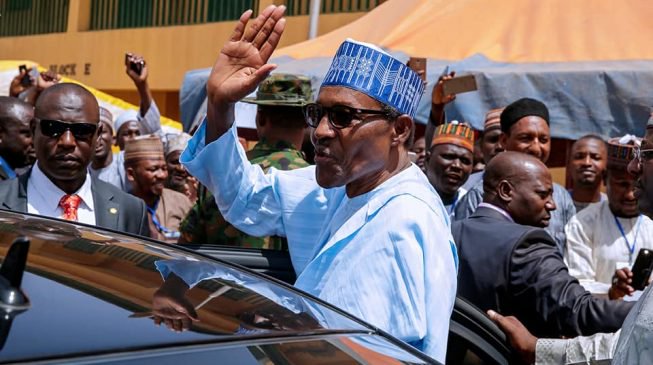The general explanation of the penchant of Nigerian political leaders to seek exposure and validation from metropolitan Europe will be found in the concept of neocolonialism and globalisation. ‘This notorious fact is the continuing dependence of former colonies on foreign countries especially the former colonial powers and takes the form of economic imperialism, globalization and cultural imperialism-domination or rule maintained through ideological or cultural means. Proceeding from the general to the specific, in the experience of Nigeria (dating back to 2007), this behaviour has manifested in the visits of Vice-President Atiku Abubakar, President Muhammadu Buhari and lately Governor Bola Ahmed Tinubu to the Chatham house in London. The preliminary pertinent question is at whose bidding were these visits contracted? Given the objective of self promotion inherent in the visits, the probability is that these political leaders requested the invitation.
Chatham House advertises itself with some validity ‘as a world-leading policy institute with a mission to help governments and societies build a sustainably secure, prosperous and just world’. What it will not admit is that in the case of these Nigerian politicians the inference of “follow the money” is the clincher. In other words, the invitation will be greatly facilitated were a potential invitee to make a generous ‘philanthropic’ donation to the institute. According to its brochure on the sources of funding, the think tank claims ‘it is independently funded. It receives discretionary support from its membership and other individuals, and receives funding for its research and other activities from governments, the private sector, and charitable foundation.The institute receives some income from investments and from miscellaneous sources”. The elasticity of these itemised sources of funding renders it amenable to becoming a sympathetic advocate of those who come knocking on its doors coated in dough.
I had a personal experience of this proclivity (with the requisite caveat emptor) that I have a vested partisan interest in the recall I’m about to make. And that a lot of water have since passed under the bridge to restore goodwill among the contending parties. At the height of the frosty relationship between President Olusegun Obasanjo and Vice President Atiku Abubakar, the latter sought the platform of the Chatham house to advance his perspective of the adversarial relationship with his estranged principal (and was readily obliged). He dutifully employed the occasion to paint Obasanjo black and blue. As political adviser to the President at the time and as earlier indicated I confess to having a dog in the race. Without apportioning blames or relitigating the conflict I couldn’t recall any precedent for the manner in which the Vice-President had escalated the political warfare. The other side would probably make a counter claim against President Obasanjo. This theatre of the absurd escalated to a degree in which as sitting Vice-President (elected on the platform of the Peoples Democratic Party, PDP) Abubakar went ahead to pick the presidential ticket of the opposition party, Action Congress, ACN, to contest the 2007 presidential election while remaining in situ as elected PDP vice-president.
Getting wind of the scheduled rendezvous, Obasanjo dispatched four of us (including a prominent proxy of Tinubu at his recent chatham house engagement), to respond to the predictable assault his deputy would launch at him. Thus I engaged with Abubakar. And the logic of my repartee was simple. I said I deemed it absurd, untenable and unacceptable that a sitting Vice-President can embark on a tour of calumny against a government of which he was number two. I concluded that if he felt so inclined, the right and proper thing for him was to resign and free himself from the obligation of his elected office. Fair intervention? Not according to the Chatham house moderator. At the conclusion of the event, he came charging at me that my intervention was below the belt.
Just before the 2015 presidential election, the All Progressives Congress, APC presidential candidate Muhammadu Buhari was packaged for a road show at the same destination. And in fits of self acclamation he gave a false referral of his potential capability and competence. In the event he proved long on promise and disastrously short on delivery. Amongst others, he boasted: “Apart from the civil war era, at no other time in our history has Nigeria been this insecure. Boko Haram has sadly put Nigeria on the terrorism map, I, Muhammadu Buhari, will always lead from the front and return Nigeria to its leadership role in regional and international efforts to combat terrorism”.
“A development economist once said three questions should be asked about a country’s development: one, what is happening to poverty? Two, what is happening to unemployment? And three, what is happening to inequality? On corruption, there will be no confusion as to where I stand. Corruption will have no place and the corrupt will not be appointed into my administration. And in doing this, I will, if elected, lead the way, with the force of personal example”.
Seven years on, this was the verdict of a co Londoner, the financial times of London “Campaigning has already begun for presidential elections that in February 2023 will draw the curtain on eight years of the administration of Muhammadu Buhari, on whose somnolent watch Nigeria has sleepwalked closer to disaster. Buhari has overseen two terms of economic slump, rising debt and a calamitous increase in kidnapping and banditry — the one thing you might have thought a former general could control”.
Enters the latest entrant into the Chatham house pantheon of political supplicants from Nigeria, Tinubu. Needless to say that the controversy that followed his visit is entirely in character. The institute announced that “at this event, Bola Ahmed Tinubu, presidential candidate for the All-Progressives Congress, discusses his vision and recently unveiled manifesto for ‘renewing hope’ in Nigeria including his policy proposals for economic reform and revival and how to deliver secure and inclusive job opportunities for Nigerian citizens”. Did he live up to the billing? I concede the floor to Tunde Olusunle “What Tinubu did in London on December 5 is akin to what happens in so called examination miracle centres in Nigeria. Tinubu’s outsourcing of the questions was a watershed in the history of political engagements anywhere. The world has taken due cognisance of our leadership recruitment prototype at the topmost echelons in Nigeria”. Following Olusunle, a gifted wit depicted the occasion in this rib cracking satire “‘I’m going for a job interview as the Chief Medical Director of FMC Abeokuta. Please I need a professor of medicine; 2 medical lecturers from UNILAG, 4 final year students in medicine, 5 senior nurses and 3 PhD holders in microbiology. They will answer my questions at the interview”.
The truth of course, is that he was obviously indisposed to answering questions directly on account of understandably age related debility. Even Chatham house had to issue a disclaimer “Yesterday’s event was not the norm and our Chair was not notified in advance that Mr Tinubu would be delegating questions,”. The principle of Chatham House events is to be able to hear the views of invited speakers, and also to hold those speakers to account.”.
The peculiarity of Tinubu’s appearance at the Chatham house in London is consistent with a pedigree of norm shattering behaviour. Before he left for London the debacle of his presidential campaign was a sight to behold and a demarketing of his candidacy. If the Nigerian electorate were to base their judgment on who becomes the president solely on the record of his erratic gaffe prone outing so far on the soapbox, it will be illogical to expect him to win. Now again, he went from this depressing backdrop to, in connivance with the management of Chatham house, indulge in a subversion of the norm and tradition of conducting interviews at the prestigious institute.
After taking into account the fairness doctrine of drawing the line between where legitimate scrutiny stops and vindictive inquisition begins, it remains pertinent to ask the question, why is it that almost all the critical junctures of his career tend to get mired in suspicion and controversy? Why does he do this to himself and those addressed as his upright lietunants?. Short of lapsing into a conspiracy of silence, is there anyway to credibly assess him without taking all these issues into account? Was it not a few weeks ago that the former governor of cross river state, Donald Duke, raised the alarm over the identity theft of his school boy snapshot as belonging to Tinubu (with or without the his knowledge).
There is something consistently opaque about his biodata and the surprise is that he was willing to provoke afresh unhelpful speculations on his past. He brought this to the fore at the occasion all by himself in an elaborate relitigation of his bona-fide. He went down memory lane “At the time of birth, I was dated March 29, 1952”. “I’ve had a very good exposure in life, my record is consistent in the school, in the university, they (critics) are now convinced that they wasted their money and their time. The record is there, the transcript is there showing March 1952,”. Equally, it remains the same, Deloitte, Chicago State University where I graduated from has attested to that. Now, I can announce that I have received my original replacement degree certificate from them. Deloitte trained me as an accountant. Mobil Oil has attested to my record, outstanding record, I got to the pinnacle of my career in the private sector. Who among them can brag about that?”. The problem here is that given past trends, some or all these claims are prone to different versions under the searchlight of dispassionate verification.
It however stands to reason that much of the contemporary public hostility he has attracted is inspired by the national disintegrative effect of the same fait presidential ticket he champions. Like the biblical narrative of Saul becoming Paul, it may be the case that regardless of his controversial personal records and reputation, Tinubu may become a model Nigerian president. The snag with this analogy is that the transfiguration of Paul was a miraculous intervention by God. So the expectation of a transformed Tinubu may require a similar epiphany. Second is that Paul did not deny his past, he came to terms with it. We have not seen a likewise inclination by the APC presidential candidate. Third, it was not the lifelong ambition nor obsession of Saul to become Paul.





